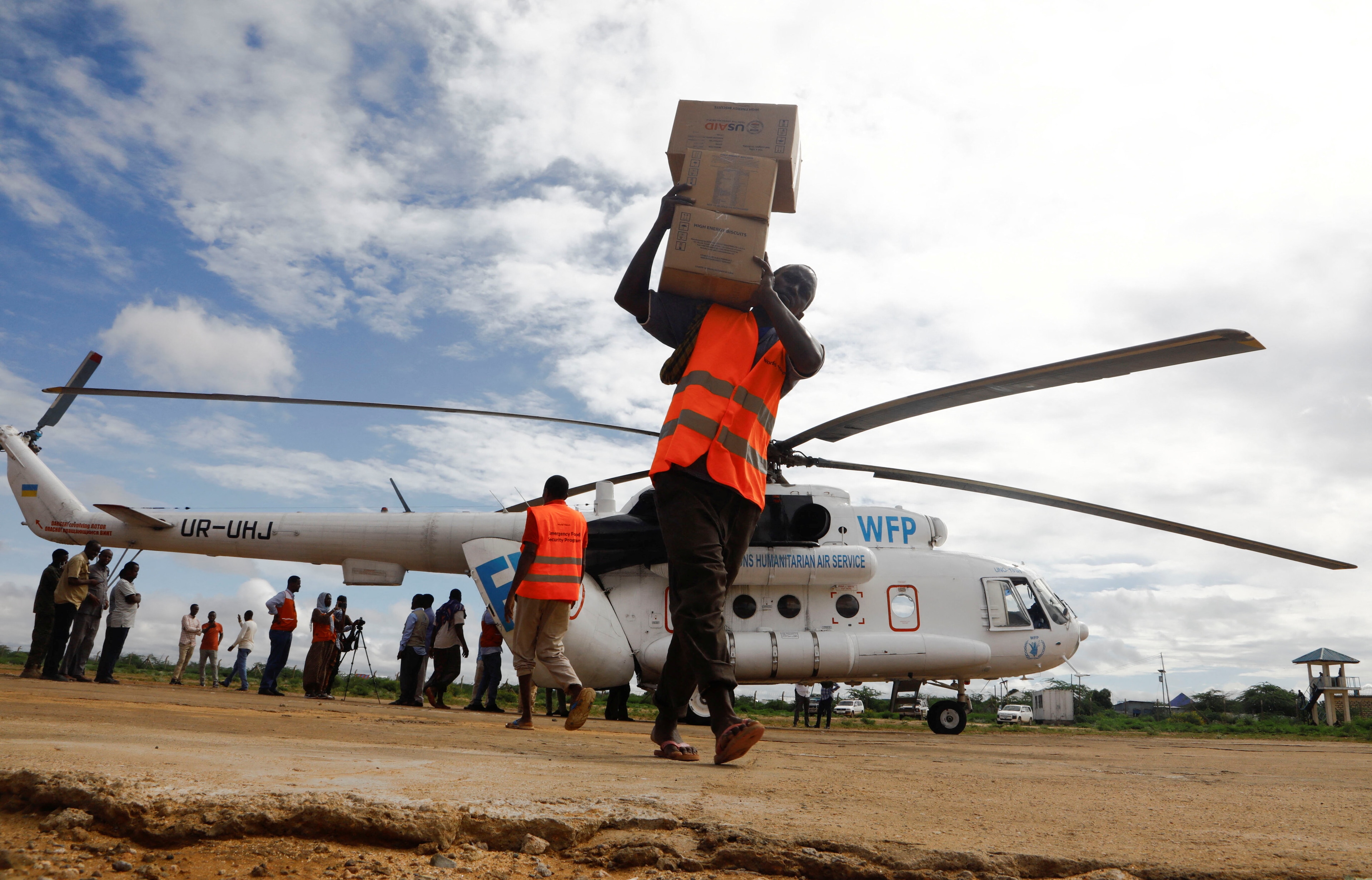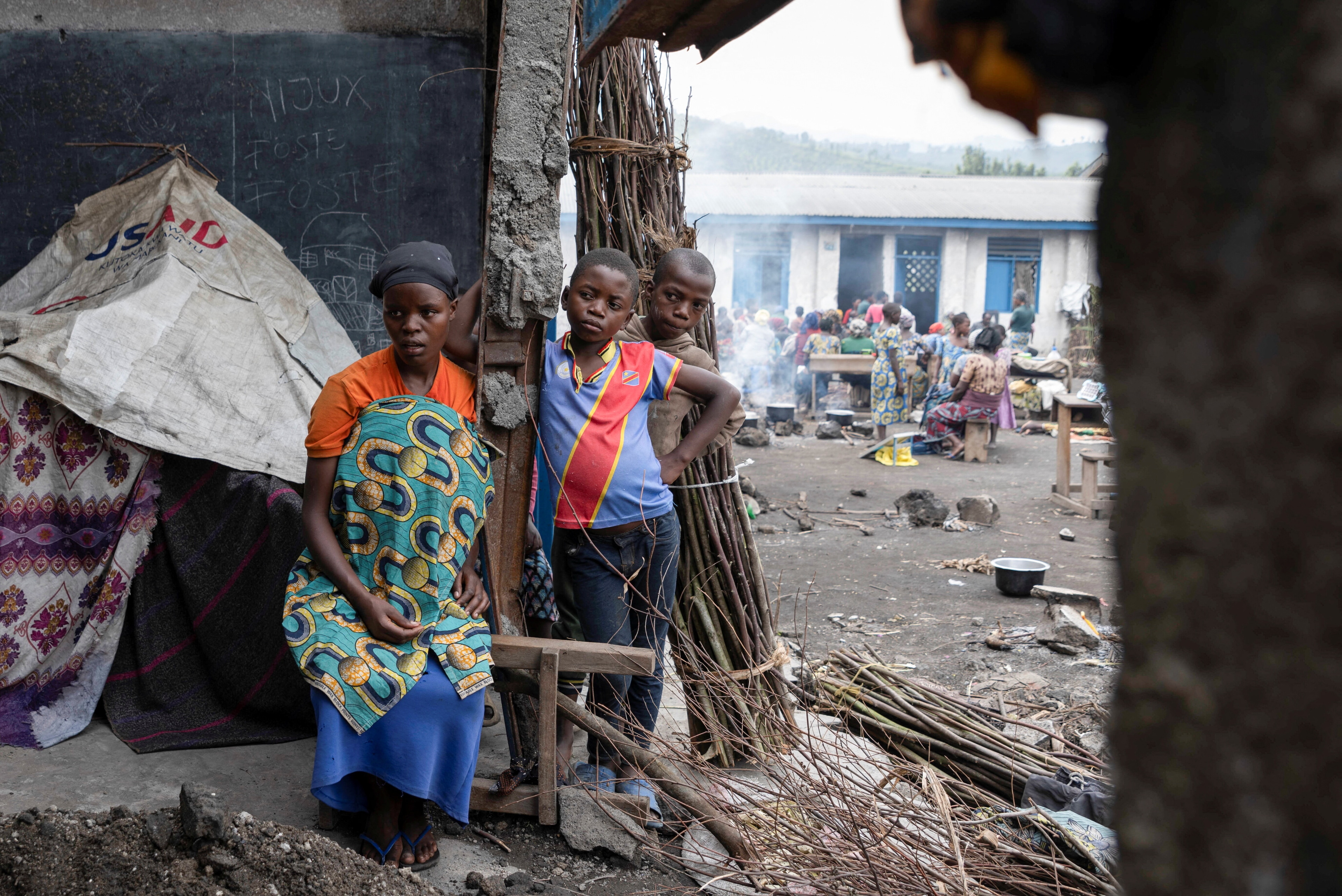On World Refugee Day, a look at how COVID-19 is affecting refugees and asylum seekers

World Refugee Day is an opportunity to discuss how to support refugees and asylum seekers during the COVID-19 crisis.
Image: REUTERS/Baz Ratner
Stay up to date:
Migration
- As the threat of the COVID-19 pandemic intensifies in refugee communities, preparedness is more important than ever.
- The spread of misinformation in refugee camps poses a serious threat to refugees and humanitarian workers.
- Asylum seekers fleeing dire situations are trapped due to increasingly harsh migration policies and border closures.
Around the world, refugees and asylum seekers are suffering from the physical and political effects of COVID-19, which are compounded by the circulation of misinformation, provoking fear and uncertainty.
In areas where access to government services such as medical care is limited, there is a pressing need for international cooperation to protect the rights of vulnerable groups. World Refugee Day – 20 June – is an opportunity for a call to action across sectors to build the resilience of refugees and asylum seekers in the midst of the crisis.
World Economic Forum Global Shapers and Young Global Leaders from the United Nations High Commissioner for Refugees (UNHCR), Konexio, Kakuma Hub and The New Humanitarian convened virtually to discuss challenges and efforts to provide access to knowledge and aid for those who need it most.
We are currently in the ‘stillness before the storm’...it isn’t a question of if the pandemic will hit the refugee population, but a matter of when.
”UNHCR response to impact of COVID-19 on refugees and asylum seekers
UNHCR, the UN refugee agency, is utilizing a multifaceted approach to brace camps around the world for possible outbreaks. Ongoing work with governments to advocate for the inclusion of refugees in national health responses is central to the approach. COVID-19 magnifies a long-existing crisis, in which the majority of refugees and asylum seekers reside in countries with poor health systems.
Filling infrastructure gaps and ensuring the availability of personal protective equipment for health workers is crucial. According to H.R.H. Jaime de Bourbon de Parme, UNHCR's Senior Adviser for Private Sector Partnerships, at the moment of the session, “UNHCR has globally distributed 6.4 million masks, about 600 to 640 ventilators to 525 high-priority countries and are setting up isolation facilities.”
Cash assistance programs have also been put in place to assist refugee families and individuals who are experiencing income loss due to enforced quarantines. However, many questions remain, including how to best respond to the myriad socio-economic impacts, including halted education.
Building resilience in Kakuma Refugee Camp
Nestled in Northwestern Kenya’s Turkana County, Kakuma Refugee Camp is one example of the kind of densely populated settlement all too common among refugee camps worldwide. As of March 2020, the camp hosts over 190,000 residents, creating implications for social distancing measures and fuelling the rapid spread of inaccurate information.

The Kakuma Hub, a network of young people displaced by conflicts and instability in neighbouring countries, partnered with UNHCR to combat the spread COVID-related misinformation. The project used social messaging apps to disseminate context-specific updates sourced from UNHCR Kakuma to community leaders and residents.
Kakuma Hub Global Shaper Zakaria Odowa explained that “by sharing the correct and relevant information, community members in the refugee camp are able to protect themselves and their family members.”
Additionally, the partnership launched a handwashing campaign using WHO guidelines to educate the camp on hand hygiene and sanitation.
Harsh migration policies
"Hundreds of refugee-led organisations have the trust of their communities and are able to reach people in effective ways, but they don't have the support and the resources that they need," said Heba Aly, Young Global Leader and Director of The New Humanitarian.
The pandemic has created operational and logistical constraints on immigration services around the globe. Border closures and temporary halts on administering asylum claims have made it impossible for those fleeing conflict areas to evacuate and seek asylum. In addition, new asylum claims cannot be registered in countries like Italy, where immigration offices have been reassigned for emergency coronavirus-related duties. As a result, refugees and asylum seekers can't register a new status claim and are then deprived of basic health care without any formal identification and registration documents.
The pandemic has also been used as a justification for countries to advance anti-migrant policies. Governments are taking advantage of the crisis to push through legally dubious hardline migration policies that are not justified by public health concerns.
Uganda, which hosts approximately 1.4 million refugees primarily from the Great Lakes region, announced the suspension of reception of new refugees and asylum seekers. Regulations restricting the movement of asylum seekers could curtail protection of individual rights and physical safety – especially if these new regulations remain after the crisis.
What is the World Economic Forum doing to manage emerging risks from COVID-19?
A call to action
Young Global Leaders and Global Shapers were presented with clear calls to action to support refugees during the COVID-19 crisis and beyond:
"Many refugees live in urban settings – it could be a city in which you are working or living," said H.R.H. Prince Jaime de Bourbon de Parme of the UNHCR. "I would encourage YGLs and Shapers to reach out to them through local NGOs and religious organisations and chat with them about what they truly need."
"Inclusive and non-discriminatory national and international policies are very crucial to protect and improve the lives of refugees, while keeping in mind the need for refugees' participation in decision making processes," added Zakaria Odowa of Kakuma Hub.
"Staying up to date and informed about what's going on with refugees across the globe is a first step," concluded Heba Aly of The New Humanitarian.
Don't miss any update on this topic
Create a free account and access your personalized content collection with our latest publications and analyses.
License and Republishing
World Economic Forum articles may be republished in accordance with the Creative Commons Attribution-NonCommercial-NoDerivatives 4.0 International Public License, and in accordance with our Terms of Use.
The views expressed in this article are those of the author alone and not the World Economic Forum.
Related topics:
Forum Stories newsletter
Bringing you weekly curated insights and analysis on the global issues that matter.
More on Resilience, Peace and SecuritySee all
Vanina Farber
July 21, 2025
Robert Piper
July 17, 2025
Resilience roundtable: How emerging markets can thrive amid geopolitical and geoeconomic uncertainty
Børge Brende, Bob Sternfels, Mohammed Al-Jadaan and Odile Françoise Renaud-Basso
July 9, 2025
Kate Whiting
June 19, 2025
Alejandro De Quero Cordero and Giorgio Parolini
June 6, 2025
Kalin Bracken and Sam Chandan
June 6, 2025






